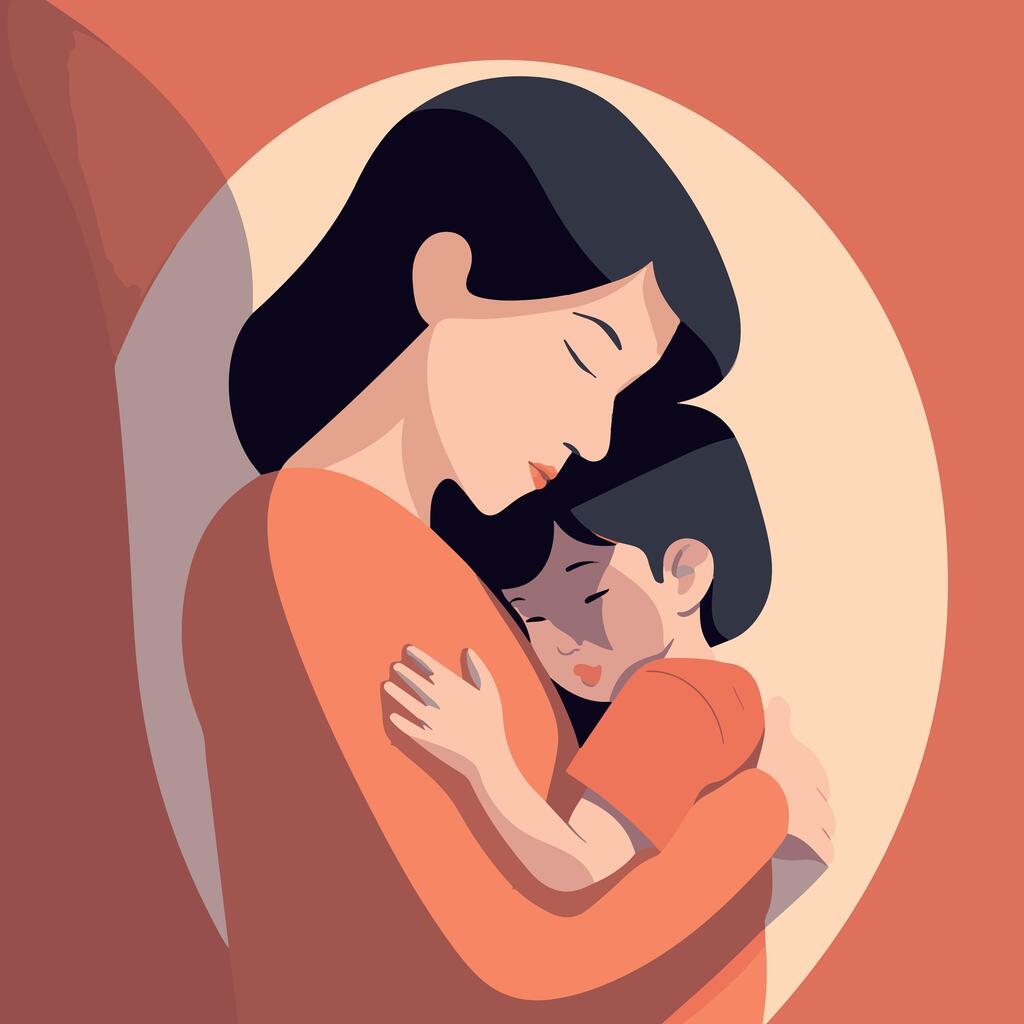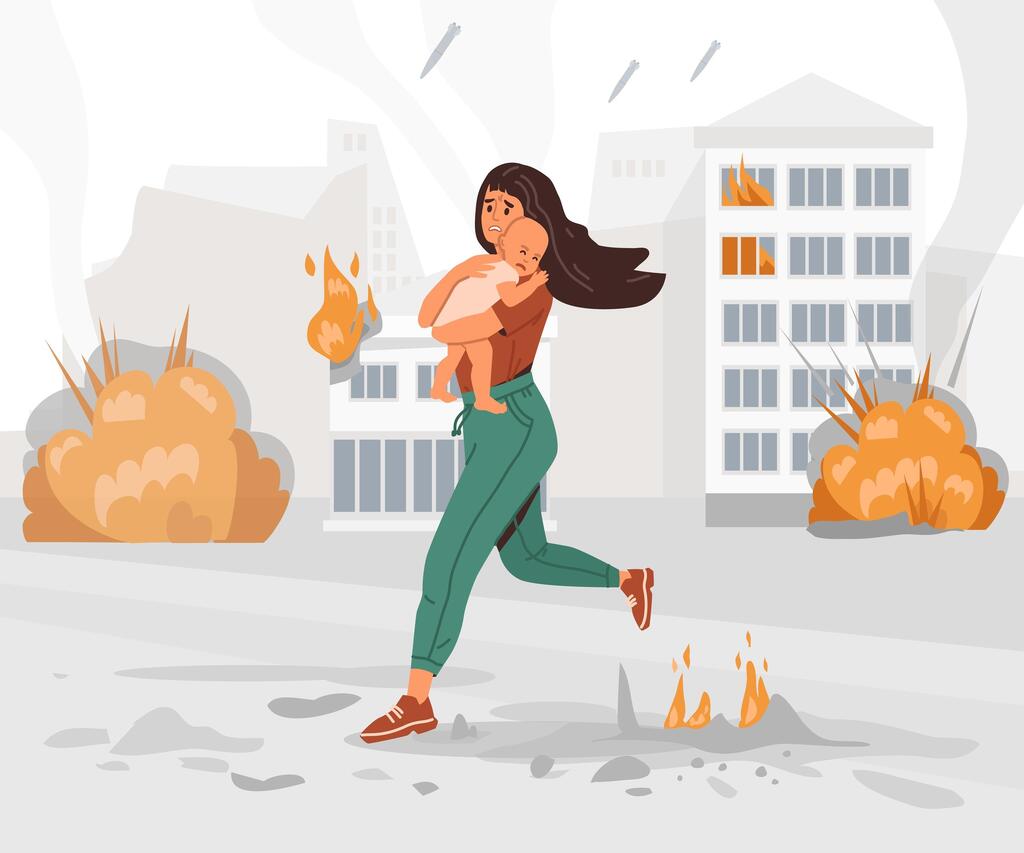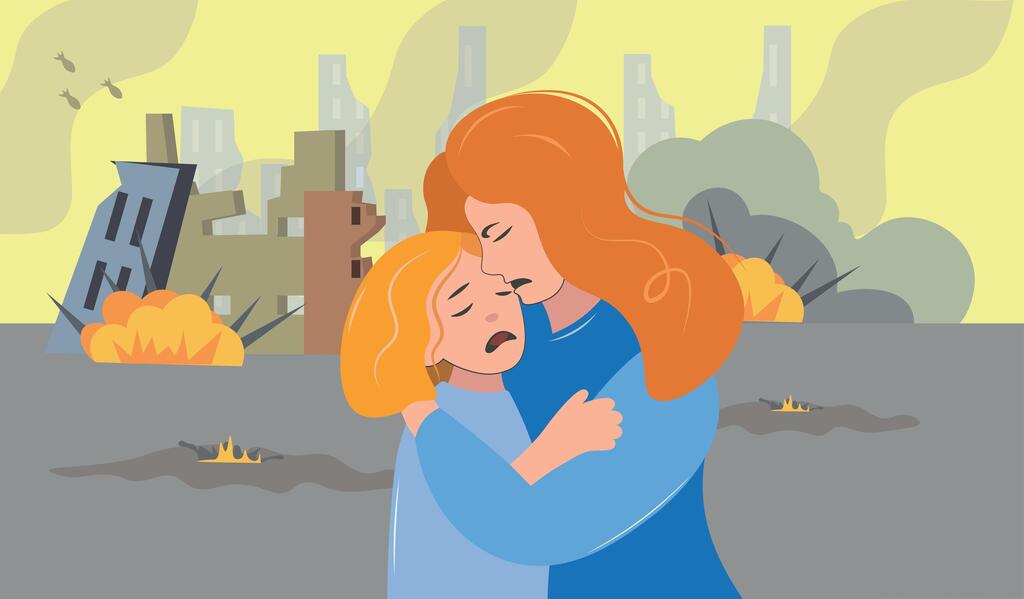Parents often grapple with the challenge of explaining complex and difficult concepts to their children. Words like "kidnapping", "captivity", and "penetration" have become a part of our daily vocabulary, and it's critical to find suitable ways to communicate their meaning to our young ones.
Read more:
The Goshen Association provides alternatives to these words and offers strategies to explain them to children. However, it's important to note that these tools are not designed for children who have experienced severe trauma as a result of the war.
Describing an inherently incorrect reality with "correct" words is a daunting task. It can be exceedingly difficult to find the right words, but establishing an open dialogue with our children is crucial. There isn't an ideal age to initiate such conversations, but different levels of detail can be appropriate for different children of varying ages.
The proposed dictionary provides alternative expressions for the same word, which can be chosen based on the parent's ability to explain and the child's capacity to comprehend.
Speak the truth, even if it's not the whole truth. Find a way to truthfully communicate in a manner that maintains the sense of security that children need. It's important not to inundate them with frightening and catastrophic information.
Here, we've tried to provide truthful, minimal explanations with room for questions, fostering hope, protection, and security. Speak to the children in words they can understand. Maintain eye contact and add a touch or a hug to create a sense of security and reassurance. Take a deep breath or do something that will help you stay composed. This is to conduct the conversation as calmly as possible.
Inviting children to share their understanding is always the first step. Inquire gently, for instance, "What do you know? What have you heard?" and encourage them to ask you anything. Make it clear that you are their reliable source of information about what's happening. You could say, "You're asking really good and important questions. I have questions too, but we don't always have all the answers. As soon as I learn more, I'll share it with you."
Even if children don't voice their concerns, their behavior may indicate distress. In such cases, it's crucial to help them articulate their emotional experience, which in turn aids their understanding and fosters a sense of calm.
Wrapping up the conversation is equally important. You can ask, "How did you feel discussing this?" If they don't respond, that's okay. You can reassure them by saying, "It's really challenging and heavy. We are all feeling a lot of emotions (anger, fear, sadness), and we're in this together."
Incursion
1) bad people came into a place where people live. This is something that almost never happens because there is a fence and guards. When it does happen, we stay inside the room with our family until the soldiers capture them and it's safe to go out.
2) You can use the above explanation and add: The communities have guards and a large fence that protects them. This time, terrorists managed to enter an Israeli community and all the residents had to stay at home, in the safe room, until the soldiers captured the terrorists and it was safe to go out.
3) If the children continue to ask if terrorists managed to enter, you can answer yes. What happened was that terrorists entered the community with the intention of hurting people, and all the residents had to stay at home in the safe room until the soldiers caught them and it was safe to go out.
Fence
1) Around the house, garden, community, and country there are fences. The fence protects those inside so that people who should not enter do not come in.
2) Around the house, garden, school, community, and country, there is a fence that usually protects those inside so that people who should not enter do not come in. This time, the terrorists managed to cross the fence and enter into a part of Israel. Now our soldiers are busy capturing them and guarding the fence more strongly so that it does not happen again.
3) Between us and Gaza there is a fence which is our border that prevents passage from there to our territory. It has guards, cameras, and observation posts. The event that happened on Saturday morning was exceptional when people managed to break all the means of protection and crossed the fence. Now they are fixing the fence and the IDF is guarding it better.
Missing Persons
1) People whose families have not been able to find out where they are since the war, and are still looking for them.
2) People we can't find and they can't call us. We all worry about them and there are many people now searching for them.
3) People who we don't what had happened to them. They may be okay or something may have happened to them. They can't communicate and it's hard not to know. We all worry about them and there are many people now searching for them.
Captives
1) People who are now being held by enemies/terrorists. We are trying to bring them home.
2) Good people that our enemies have taken. We care about them and do not know if and when we will meet them again, but we, along with many people, are doing everything to bring them home. This happened in an area that is far from us (if true).
3) People that the terrorists have kidnapped to Gaza and we care about them and are doing everything to bring them home. Sometimes there are negotiations about the conditions, and what needs to be given to Hamas in exchange for them to be released. There have been cases of captives returning home like Gilad Shalit, and it can take time.
Terrorists/Hamas
1) Enemies of Israel who want to harm the people living in the country. We are now fighting them to defend ourselves.
2) Israel's enemies who belong to a terrorist organization and fight us in an immoral and cruel manner. We are now fighting them to defend ourselves. The whole world is fighting them with us and supports us against them.
Gaza
1) A city outside of Israel, which has residents but also terrorists/enemies of Israel living in it. (you can show this on a map or drawing if appropriate.)
2) Near Israel, there is a place called Gaza, and we share a border with it. There are residents there, but also terrorists from Hamas or Jihad who launch rockets. If the child asks, you can say that's where they took the people they kidnapped and are now hiding there.
Siren
1) A loud noise with a special sound that signals us to go together to a protected space or a shelter.
2) A loud noise with a special sound that signals us that now there are rockets and we need to go together to a protected space or a shelter that protects us.
3) A noise with an ascending and descending sound that is activated when rockets are fired at us. When you hear it, you need to go to a protected space or a shelter.
Missiles/Rockets
1) Israel's enemies sometimes send things here called missiles or rockets. We have an "Iron Dome" that destroys these missiles so they don't fall on us.
2) Terrorists/Hamas fire missiles/rockets at us. Our army has a system called the "Iron Dome" which destroys their missiles so they can't harm us.
Safe Room
1) A special room inside or outside the house where missiles cannot cause damage. When an alarm sounds, we need to quickly and carefully enter the shelter, and there we will be safe until there are no more missiles.
2) A special room in the house or outside, which is built stronger than the rest of the house, with concrete walls, and special doors and windows, that protects against the damage that missiles can cause. When an alarm sounds, you need to quickly and carefully enter the shelter and wait there until the missile attack is over.
Reserve Duty
1) Dad or Mom went with other soldiers to help people who need help and to protect us.
2) Our dad or mom is a soldier, and they went out with other soldiers to help people who need assistance. Just like Dad or Mom go to work every day, this time they didn't go to work but went to the army.
3) There are now missiles and shootings in the south/north and the people there need the army to help them. Dad or Mom's unit, which includes them and their friends, is going to help them. Dad and Mom have what is needed to protect them (you can add: strong tank/vest/gun), and they trained for this. They won't always be available and we are all thinking of them and waiting for them to return quickly and safely.
Fallen Troops
1) People who died in war and are now in our hearts and memories.
2) When someone dies in war, we say he’s “fallen”. There is a special cemetery for soldiers. Now they are in our hearts and memories.
Funeral
1) When someone dies, their body no longer feels anything and it is placed in the ground, in a special place called a cemetery.
2) In a funeral, the people who loved the one who died go to a place called a cemetery/graveyard and say their goodbyes. The body of the one who died no longer feels anything, so it is placed in the ground and they say their goodbyes.
3) The soul, which is all the thoughts and feelings and love that those women and men who died had, remains in our heart and memory.
To sit “Shiva” for someone
1) After a person dies, his or her family stays at home for a week to say goodbye together.
2) After a person dies, his or her family stays at home for a week, and friends come to the house to visit and tell stories together, and to continue remembering him or her. Some of the time there will be sad stories and people will cry, because they miss those who passed away/were killed/died, but some of the time you can remember the funny stories and it's also okay to laugh.
- Dr. Mia Yaari is a psychologist at the "Goshen" association, which works for the welfare and physical and mental health of children
- The content was written by the professional staff of the association, and validated by Prof. Tartza Yoels - head of the applied field at the Child Development Research Center, senior lecturer in the Department of Psychology at the School of Psychological Sciences at the University of Haifa.




